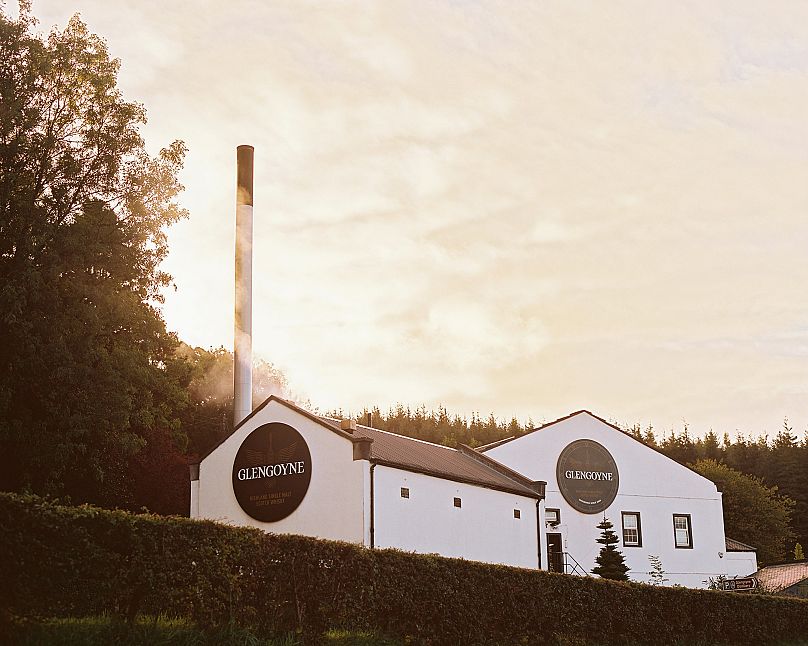Whether you want a pre-organised tour or a solo trip in the wilds, this friendly country will welcome you with open arms - and a dram or two.
For epic views of untouched landscapes, New Zealand, South America or the Rockies might come to mind. But with travel still uncertain and the negative impact of long-haul flights becoming ever more clear, staying in Europe is a priority for many for 2022 and beyond.
Scotland is leading the way on responsible travel by making it easy to experience stunning mountains, lochs and remote villages and castles without adding to your carbon footprint.
So read on for ideas of where to go and what to do in 2022.
Organised and self-guided trips with Wilderness Scotland
While the Glasgow Declaration on Climate Action on Tourism aims to encourage the travel industry to halve emissions by 2030, Wilderness Scotland is going further over the next decade.
Offering over 150 active and nature-based trips throughout Scotland, the company offers a wide range of guided and self-guided walking, sea kayaking and adventure holidays.
Its recently unveiled carbon labelling scheme includes surveys of the carbon footprint of each of its 300+ suppliers and is part of its intention to become 'True Net-Zero' by 2030.
"By 2030 we commit to reducing our emissions by 90 per cent (a reduction of 9 per cent per year for 10 years from our base year 2020) and permanently removing carbon from the atmosphere for those emissions which remain," Paul Easto, co-founder of Wilderness Scotland said.
"We hope that the carbon labelling scheme will become the norm for travel and tourism, allowing customers to make informed decisions on where and how to travel,” he added.
Wilderness Scotland also operates a strict ‘leave no trace’ policy, encourage guests to visit remote locations to help ease overtourism and works with local rewilding and wildlife charities through their Conservation Contribution Scheme.
To reach their goals they are also redesigning itineraries to reduce road travel, decarbonising their entire vehicle fleet and continuing to work with the charity Trees for Life, by investing in carbon removal at their Highland estate at Dundreggan.
Explore the UK's largest national park in the Cairngorms
For beautiful vistas and rugged scenery, the nations largest national park is home to five of the UK's six highest mountains, alongside 55 Munros - mountains over 900 meters.
The Cairngorms National Park offers many activities from watersports, snowsports, wildlife watching, and some incredible walking and cycling routes. You can also explore ancient fortresses, visit distilleries and museums and stay in friendly villages.
With its low level of light pollution, it's also the perfect location to try a spot of stargazing.
The Cairngorms National Park recently became a recipient of a Heritage Horizons award, enabling it to launch 'Cairngorms 2030: people and nature thriving together.
Cairngorms 2030 aims to preserve the landscape and its rare wildlife by expanding woodland, developing nature-friendly farming and using sustainable transport.
The project involves over 45 partners, ranging from the NHS to Highland and deer management groups. They will work together to tackle the climate emergency and nature crisis, delivering an economy that works for all.
Stay in a revamped mountain shelter
Bothies were once found in remote mountainous areas, particularly the Scottish Highlands. But these once humble shelters, which were usually left unlocked and available for anyone to use free of charge, have now been reinvented into a glamping experience by Back Track Bothies.
The three bothies - or three eco-cabins have turf roofs, reed beds, compost loos and sheep wool insulation.
Set in the heart of Glenfinnan in the West Highlands the location offers fantastic walking and mountain-biking, beautiful beaches nearby and easy access to the Isle of Skye.
Take a tip from the experts at Visit Scotland
Visit Scotland promotes the country to visitors both nationally and internationally, so they have a wealth of information to help you plan the perfect trip.
Their top recommendations include:
If you want to get off the beaten track
If you are interested in little-known legends then hop on a mini-coach tour with Rabbie's. Visiting a mix of famous sites and less well-known locations, Rabbie's driver guides know the stories, sights, and secrets of the areas you travel through.
Taking you off the beaten track, Rabbie's tours also help the economies of out-of-reach villages and communities and prevent overtourism.
The company uses only locally-owned services and facilities on their tours and guides are also trained to pass on the 'leave no trace' message to customers.
Try a wee dram of Glengoyne
Even if you're not a whisky fan, it's worth a visit to the Glengoyne Distillery in Loch Lomond and the Trossachs National Park for a unique and sustainable whisky tasting experience. The distillery has its own beehives, uses 100 per cent renewable power and has its own wetlands - the first of its kind in Scotland.
Rather than sending liquid waste to an industrial treatment plant, reed beds filter and cleanse waste, which is then disposed of in an environmentally friendly manner on-site. Solid waste from the production process is also converted into electricity for local houses.
Stay in one of Scotland's greenest Inns
If cosy log fires and hearty food are more your style, a stay in a traditional Scottish inn will be right up your street.
Glenuig Inn located on the Sound of Arisaig in Inverness-shire is set on a small ‘no through road’ making it quiet, peaceful and a great place to recharge your batteries. On its doorstep are white sandy beaches and a rocky coastline for scrambling. Or you can paddle to islands, go bird watching and otter spotting.
The Inn uses 100 per cent renewable energy, is a zero food waste site and has achieved a 98.5 per cent reduction in waste to landfill. Any food waste is dried and sterilised before being added to the biomass fuel mix to provide heating and hot water.












